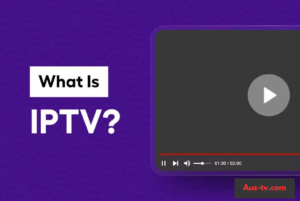
Introduction to IPTV
Internet Protocol Television (IPTV) is a service that delivers television content over an internet protocol (IP) network instead of through traditional satellite or cable services. IPTV allows users to stream live TV channels, on-demand content, and more directly to their devices, such as smart TVs, smartphones, tablets, and computers.
How does work?
IPTV works by receiving television content through an internet connection using the IP protocol. Users can access live TV channels, video-on-demand, and other interactive services through their internet-connected devices. IPTV services typically require a subscription and a compatible device to access the content.
Types of IPTV services
There are three main types of IPTV services: live television, video-on-demand, and time-shifted media. Live television services allow users to watch live TV channels as they are being broadcast. Video-on-demand services offer a library of movies and TV shows that users can choose to watch at any time. Time-shifted media services allow users to rewind, pause, or fast-forward live TV content.
Benefits of IPTV
One of the main benefits of IPTV is its flexibility and convenience. Users can access their favorite TV shows and movies on multiple devices, anywhere with an internet connection. IPTV also offers a wide range of content, including live sports, news, and international channels.
IPTV vs Traditional TV
IPTV offers several advantages over traditional TV services, such as cable and satellite. is more cost-effective, as users only pay for the content they want to watch. It also provides a greater selection of channels and on-demand content compared to traditional TV services.
Popular providers
Some popular IPTV providers include Hulu + Live TV, Sling TV, YouTube TV, and AT&T TV. These services offer a variety of live TV channels, on-demand content, and exclusive programming for subscribers.
Legal issues
IPTV services have faced legal challenges due to copyright infringement issues. Some IPTV providers offer pirated content, which violates copyright laws. To avoid legal issues, users should subscribe to licensed IPTV services that offer legitimate content.
The future of IPTV
The future of IPTV is promising, as more consumers seek alternative ways to access TV content. IPTV technology continues to evolve, with improvements in streaming quality, user interfaces, and interactive features. As internet speeds increase and devices become more advanced, IPTV is expected to become even more popular in the coming years.
IPTV for businesses
IPTV is also used in businesses for internal communications, training, and entertainment purposes. Businesses can create custom IPTV channels to deliver company news, events, and other information to employees. IPTV can also be used for digital signage and advertising in commercial settings.
How to set up IPTV
To set up IPTV, users need a compatible device, such as a smart TV, streaming device, or computer. Users can subscribe to an IPTV service and download the provider’s app or software to access the content. Users will also need a stable internet connection to stream IPTV content.
streaming devices
There are several devices that support IPTV, such as smart TVs, streaming boxes (e.g., Roku, Amazon Fire TV), gaming consoles, and mobile devices (e.g., smartphones, tablets). Users can choose the device that best fits their needs and preferences for streaming IPTV content.

IPTV subscription plans
IPTV providers offer different subscription plans based on the number of channels, video-on-demand content, and other features included. Users can choose a plan that aligns with their viewing preferences and budget. Some providers also offer free trials or promotional offers for new subscribers.
IPTV and internet speed requirements
IPTV requires a stable internet connection with sufficient bandwidth to stream content in high quality. Users should have a minimum internet speed of 10 Mbps for standard definition content and at least 25 Mbps for high definition content. Higher internet speeds may be required for streaming 4K or live content.
Quality of content on IPTV
The quality of content on IPTV varies depending on the provider and the user’s internet connection. IPTV services offer content in different resolutions, such as SD, HD, and 4K, with higher resolutions requiring faster internet speeds. Users can adjust the video quality settings based on their device and internet connection to optimize their viewing experience.
Conclusion
IPTV is a popular and convenient way for users to access television content over the internet. With a wide selection of live TV channels, on-demand content, and interactive features, IPTV offers a flexible and cost-effective alternative to traditional TV services. As technology continues to advance, IPTV is expected to become even more widespread in the future.
